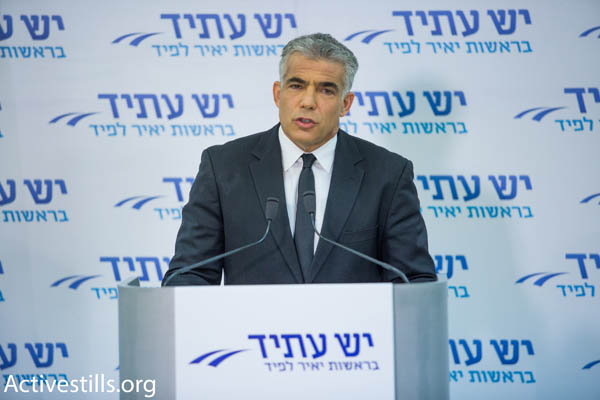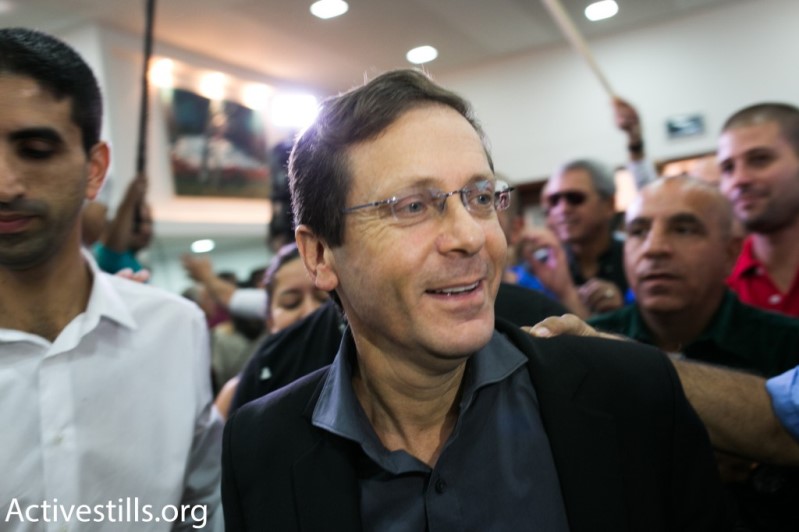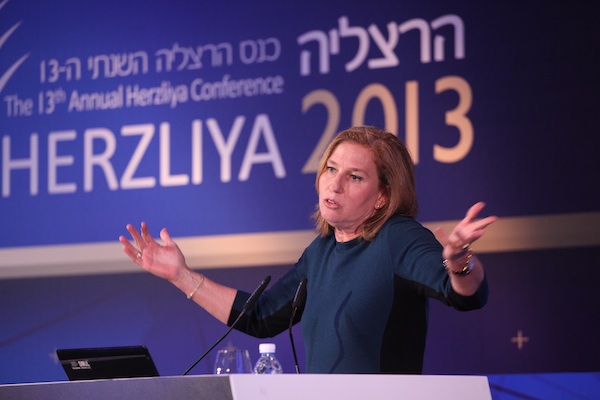We often hear that that Israeli democracy is being ‘hijacked’ by a group of right-wing extremists. Too bad the alternatives aren’t any more appealing.

Labor MK Stav Shaffir, darling of the “pro-Israel, pro-peace” crowd, recently implored progressive American Jews to do what liberal Zionists have been attempting for the better half of the past decade: reclaim the “real” Zionism from the extreme right wing’s ideological bastardizations.
Speaking to a conference of the Union for Reform Judaism in Florida last week, Shaffir tasked liberal American Jewry with explaining the “complexity” of Israel’s political map, namely that Benjamin Netanyahu and his proxies do not represent the views of all Israelis. “We have to explain this complexity [to Americans], and I believe it will be an ideological weapon for Israel’s defenders here,” Shaffir posited.
Shaffir is correct, sort of. Benjamin Netanyahu’s right-wing bloc is comprised of a mere 42 out of 120 seats in the country’s legislature. The alternative bloc, which nowadays takes great pains to call itself the “center” and not the “left,” actually grew in the latest elections.
So who are the politicians who represent the Other Israel? What are their ideologies and liberal credentials that progressives in America would find more palatable? Which could serve as an ideological weapon for Israel’s defenders?
Centrist Israeli political parties, to one of which Shaffir belongs, have been at the forefront of propagating some the more virulent forms of anti-Arab racism in recent years, often supporting — and in some cases even proposing — laws and policies one would commonly ascribe to the far right.
There is no better example than the man setting himself up to be Netanyahu’s primary challenger. Yair Lapid, whose Yesh Atid party ran on a centrist platform that emphasized improving the conditions of the middle class, has spent the better part of the last month running from one European news outlet to the next, assuming the role of Israel’s unofficial chief explainer, trying to convince the world that Palestinian violence is somehow intrinsic to Islam, having nothing to do with nearly five decades of foreign military occupation.
In his attempt to outflank Netanyahu from the right, Lapid has openly called for the extrajudicial killing of Palestinian attackers, proposed “removing the Palestinians from our lives,” and has even adopted the Right’s tried-and-true tactics of exploiting spilled blood for political gain — holding a press conference at the scene where Palestinians killed two Israelis just hours earlier.
After another terrorist attack, this time in Be’er Sheva, Lapid, who claims to unite the majority of Israelis in the political “center,” described Israel’s left wing as “traitorous” and the far right as “violent and lawbreaking.” In the same statement, Lapid reduced the Palestinians to “3.5 million Muslims stuck like a bone in our throat — [not] a partner but an enemy.”
Opposition leader Isaac Herzog, Lapid’s rival within the backbench, hasn’t fared much better in maintaining equanimity. In response to the recent stabbing attacks by Palestinians, the Zionist Union leader called to put the West Bank under “total lockdown,” echoed Netanyahu’s populist call to outlaw the northern branch of the Islamic Movement (a move opposed by Israel’s domestic intelligence agency, the Shin Bet), and called the European Union’s plan to accurately label consumer goods produced in West Bank settlements “a violent act of extremists” and “a prize for terror.”
Herzog, whose party has historically claimed the mantle of the Israeli Left, sought to oust Netanyahu with an election campaign rife with blatant anti-Arab racism. Herzog also supported the disqualification of Palestinian members of Knesset from running in the elections, and has stated that he would not want to live in a country run by a Palestinian. The opposition leader has been openly supportive of Netanyahu’s last two wars in Gaza, while at the same time deriding the prime minister for negotiating an end to 2014’s Protective Edge — because doing so entailed talking to Hamas.
The third self-declared alternative to Netanyahu, Tzipi Livni was not only a proponent and outspoken hardliner in all of Israel’s wars of the past decade, she has also had a direct hand in some of the more problematic laws proposed in recent years.
As justice minister in the previous Netanyahu government, Livni drafted and promoted populist legislation that would levy a 20-year prison sentence on people convicted of throwing stones under certain circumstances. Just last year she advanced her own version of the “Jewish Nation-State Law,” which would have constitutionally enshrined the supremacy of Jewish national rights over the individual rights of Israel’s Arab citizens. Despite giving the appearance of “softening” the legislation put forward by her more right-wing colleagues, should it have passed, Livni’s bill would have created the equivalent of a constitutional amendment relegating 20 percent of Israel’s citizens, non-Jews, to second-class citizenship.
All three “centrist” alternatives to Benjamin Netanyahu have consistently supported the right-wing government’s policy of — at-times indefinitely — detaining African asylum seekers despite the fact that they have committed no crime (Lapid himself has actively supported such policies). As my colleague Michael Schaeffer Omer-Man pointed out late last year, Livni and Lapid even had an opportunity to ensure that a High Court order to release of imprisoned thousands of African asylum seekers was actually implemented. Instead, their last legislative act before heading to elections was to satiate the wave of populist, xenophobic sentiment and vote to circumvent the High Court ruling.
Conventional wisdom has it that public discourse in Israel has shifted demonstrably to the right over the past decade. That same wisdom tells us that an Israeli public hardened by the violence of the Second Intifada and years of rockets from Gaza have opted for increasingly hawkish, militaristic leaders. Identifying from where their electoral support comes, those leaders have in turn entrenched Israel’s occupation of the Palestinian people and territories, launched almost regular wars against Gaza, incited against the state’s Arab citizens, and introduced wave after wave of so-called “anti-democratic” legislation.
This view of Israeli politics, which at its core purports that Israeli democracy has been “hijacked” by a group of extremist right-wingers, has gained currency among liberals — both Israeli and American — ever since Benjamin Netanyahu took the reigns of government for a second time in 2009.
If the Right has in fact been hijacking Israeli democracy, it has enlisted some fairly furtive partners in crime — namely, the Israeli electorate and the broad range of politicians it has elected over the past six years. So, no, not all Israelis are represented by the right-wing policies of Benjamin Netanyahu and his government. But the alternative doesn’t look all that different.





